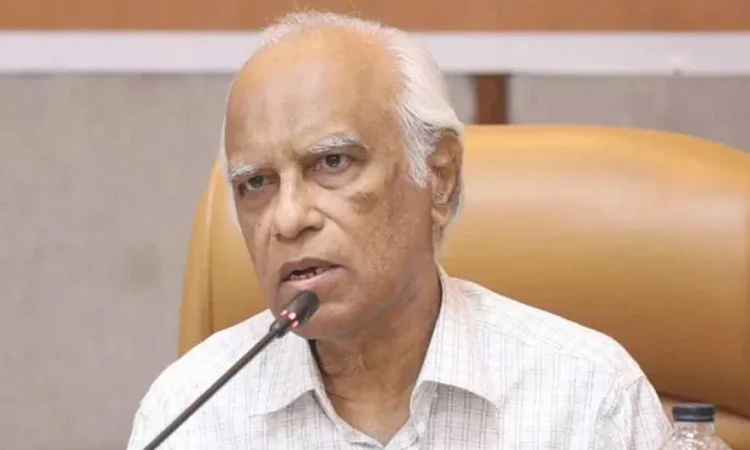
DHAKA, June 3, 2025 (BSS) - Planning Adviser Dr Wahiduddin Mahmud today
described the proposed national budget for FY26 as a "realistic and
austerity-driven roadmap" aimed at stabilizing a fragile economy strained by
debt, institutional breakdown and unfinished infrastructures.
"The primary objective of this budget is not to introduce sweeping structural
reforms overnight but to begin a difficult but necessary process of
stabilizing the economy and thus clearing the backlog of inherited
challenges," he said at a post-budget press conference at the Osmani Memorial
Auditorium here.
Finance Adviser Dr Salehuddin Ahmed and other concerned advisers and
government officials were present at the press conference.
Dr Mahmud said a significant portion of the proposed budget has been
allocated to servicing both foreign and domestic debt obligations as well as
maintaining essential subsidies in agriculture and energy sectors.
The measures, he explained, were necessary to maintain social stability and
contain inflation, which had been surging even before the current
administration took office.
"We have cleared significant backlogs in energy to foreign creditors," he
said. "But, escaping the vicious cycle of borrowing to repay debt won't
possible in a single budget. What we have done is laying the groundwork for
that transition."
"This budget should be seen as part of continuity," Mahmud said, adding: "We
have come into the middle of a very broken system for barely a year and a
half. Our focus is on cleaning up, not creating more chaos."
The adviser said that the development expenditure in the coming fiscal year
is overwhelmingly tied to ongoing projects initiated by the previous
government, many of which, he noted, were undertaken under political
consideration, without having proper financial planning or strategic
prioritization.
"Out of 1,113 development projects, only 20 to 30 are new, and even those
were already listed 'green page' in last year's budget without any
allocation," Mahmud said. "Our role has primarily been to rationalize,
restructure, and expedite completion of schemes where it is possible,"
he added that abruptly halting large infrastructure projects, such as roads
or bridges, mid-construction would cause greater economic harm.
Instead, priority has been placed on rural infrastructures such as roads,
bridges, and urban services like sanitation and water management in district
towns and semi-urban areas.
These efforts, Dr. Mahmud explained, are designed to improve livability and
reduce urban congestion by enabling decentralized development.
Commenting on mega projects, he said the government is focusing selectively
on economically vital infrastructures such as the Matarbari Deep Sea Port,
Chattogram Bay Terminal, and the Khulna-Mongla Port.
"These are not merely construction endeavors; these are gateways to boosting
our trade potential," he said. "Even in these, we are making careful budget
adjustments to reduce costs wherever possible."
For instance, he cited the example of the Mongla Port project, where the
government was able to negotiate a reduction of Taka 500 crore from the
original cost of around Taka 4,ooo crore or 5,000 crore, as evidence of
efforts to contain spending even within ongoing projects.
Mahmud lamented the poor planning and inflated costs of several legacy
projects. One glaring example, he said, is the Joydebpur-Airport Bus Rapid
Transit (BRT) project, going on for almost a decade, plagued by faulty
design, and requiring an additional Taka 3,000 crore to become operational.
"We can't just walk away from these burdens," he noted. "But we also must not
repeat the same mistakes."
While the current budget may lack the flash of structural overhaul, Mahmud
said important reforms are underway quietly, including changes to the public
procurement act to ensure 100 percent e-tendering, promoting transparency and
breaking the monopoly of a few dominant contractors.
He also spoke about efforts to reduce dependence on imported LNG by reviving
and expanding domestic gas exploration and drilling-long overdue steps that
could reduce energy import bills significantly in the future.
Highlighting a shift in approach, Mahmud said the Implementation, Monitoring
and Evaluation Division (IMED) under the Planning Ministry has begun actively
monitoring ongoing projects, not just post-completion assessments.
This includes identifying irregularities in real-time and publishing monthly
bulletins from the General Economics Division (GED).
"For the first time, our Implementation Monitoring and Evaluation Division
(IMED) officers are on the ground while projects are in progress," he added.